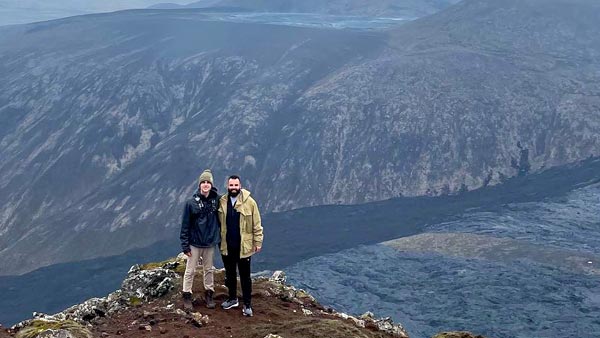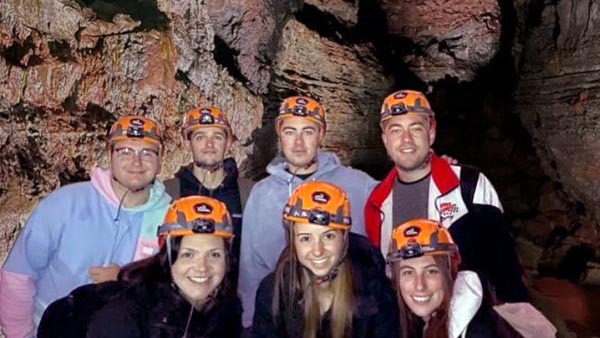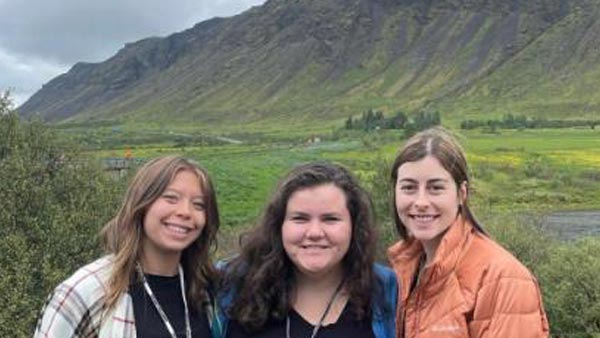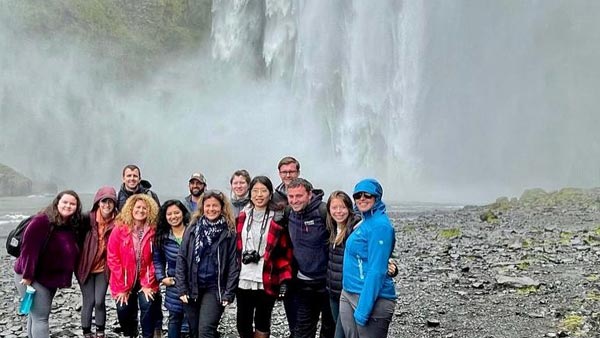During a summer trip to Iceland, 65 Bryant University MBA students took an in-depth look at environmental sustainability by seeing for themselves how the island country sustains its modern economy through innovative “green” practices.
The trip was part of a 3-credit signature course of Bryant’s MBA program, called the Global International Experience (GIE). Infused with the program’s hallmark of experiential learning, the course includes an academic group project as well as a 10-day international trip. This year’s theme was sustainability, and for good reason, says Diya Das, Ph.D., Bryant's College of Business Associate Dean and Professor of Management.
“Sustainability is a skill set that companies are looking for [...] We see more and more companies today that are thinking about the triple bottom line.”
“Sustainability is a skill set that companies are looking for because business organizations are very invested now to think about how to create sustainable organizational practices. We see more and more companies today that are thinking about the triple bottom line, i.e., reporting on their financial, social and environmental impact.”
Iceland has become an example for the world in how to overcome barriers in promoting both sustainability and economic vitality, providing rich ground for the students to learn about these efforts, while gaining global skills and perspectives along the way.
Taking it all in
Das, as well as Associate Professor of Management Dirk Primus, Ph.D., accompanied the students on the trip, which started in Reykjavík with Business Iceland, where they met representatives with deep knowledge of Iceland’s innovations in sustainability. From there, through in-person site visits throughout the capital and interviews with organizational leaders, they explored sustainability efforts across Iceland’s key sectors, from energy and tourism to agriculture and finance, taking in Iceland’s sights whenever possible.

They visited the Ljosafossstod Power Station, a hydropower plant (Iceland is the only country to have nearly 100% of their electricity production come from renewable energy sources); a Bitcoin mining farm entrepreneur who values Iceland's abundant clean geothermal energy; Iceland Ocean Cluster, an organization that promotes circular economy and entrepreneurship around the entire fish, where they met with CEO Berta Danielsdottir; Center Hotels, where students discussed Iceland’s tourism industry with COO Eva Josteinsdottir; Iceland Air training center, where they received training in flight security methods and several more key sites.

Finance and sustainability
The MBA students even investigated how to navigate financing and create bonds for sustainability projects. For this, students visited KPMG Iceland and met Bjarni Herrera Thorisson, Head of Sustainability, for a discussion on new financial instruments being created as well as the impact of FinTech and cryptocurrency. Thorisson shared career advice and what it’s like to further sustainability efforts in organizations.
“When you enter the workplace, you're going to be working with people around the world; you're going to be working in different countries at different points in time. So we just have to have those global skills.”
“This was certainly an enthusiastic group full of future leaders,” said Thorisson. “I am sure many of them will head into the economy with a sustainability mindset and help transform their organizations towards a sustainable future.”
“Having lived in several countries myself I understand the importance of knowledge sharing and cultural exchange,” added Thorisson, also touching on the overarching theme of globalism in the course.

Global skills
Das agrees on the importance of global skills, especially to her students’ careers, saying they’re a big reason why they created the travel course, and why they’ve resumed teaching it now that it’s safer to travel again. This was the first University-led international trip since the outbreak of the pandemic. While they experienced a small number of breakthrough cases upon return, the students agreed that the value of the trip was immense for their education and outweighed the risk and constraints imposed by the pandemic.
“The world of business is completely global,” says Das. “When you enter the workplace, you're going to be working with people around the world; you're going to be working in different countries at different points in time. So we just have to have those global skills. It's a huge piece, to be able to understand the different kinds of contexts that produce different kinds of business environments.”
From academic study to navigating customs, new environments and new cultures, the course is designed to impart these skills—with the experience of a lifetime.
